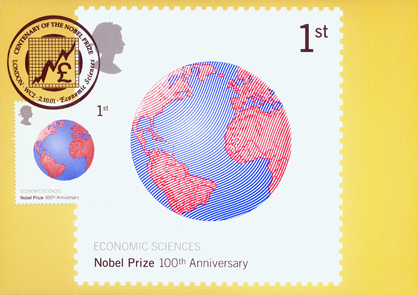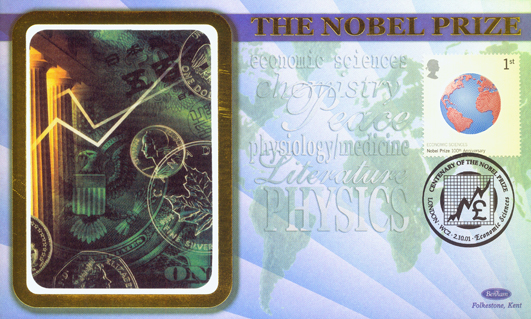The Nobel Prize in Economics
In 1968, for celebrating its 300 years of business, Bank of Sweden decided to establish a new Nobel Prize, that is, the Prize in Economic Sciences in Memory of Alfred Nobel. The amount (which equals to the amount of the Nobel Prize and is submitted to the Nobel Foundation) is denoted by the Bank of Sweden. The amount, rules and programs are authorized by Swedish Academy of Sciences according to the original Statutes of the Nobel Foundation. This new prize is extremely important and is not replaceable by the existent Nobel Prize in other fields.
|
|
In 1969, the first Nobel Economics Prize was awarded to Ragnar Frisch (Norway) and Jan Tinbergen (the Netherlands) for their "having developed and applied dynamic models for the analysis of economics processes". So far, in the past 40 years, there have been 75 Nobel Economics Prize laureates (40 alive), and they are all males except the laureate of 2009 - American Economist Madam Elinor Ostrom. Among the Nobel Economics Prize laureates are Paul A. Samuelson (USA, 1970 awarding) and James Tobin (USA, 1981 awarding) who represent the late-Keynesian theory, Milton Friedman (USA, 1976 awarding) who is the representative of the new liberalism school, Gunnar Myrdal (Sweden, 1974 awarding) and Bertil Ohlin (Sweden, 1977 awarding) who are the representatives of the Sweden School, Herbert A. Simon (USA, 1978 awarding) who has pioneered the research into the decision-making process within economic organizations, and Theodore W. Schultz (USA, 1979 awarding) and Arthur Lewis (United Kingdom, 1979 awarding) who have pioneered their research into economic development research in with particular consideration of the problems of developing ries. Although there is no objective criteria for its awarding like that in the Nobel Prizes in Sciences, the Nobel Economics Prize has no such political, ideological and cultural tendency as that in the Nobel Literature Prize and the Nobel Peace Prize. The Nobel Economics Prize laureates can be the indication of the economic development and vibrancy in the ry where the laureate comes from. |



